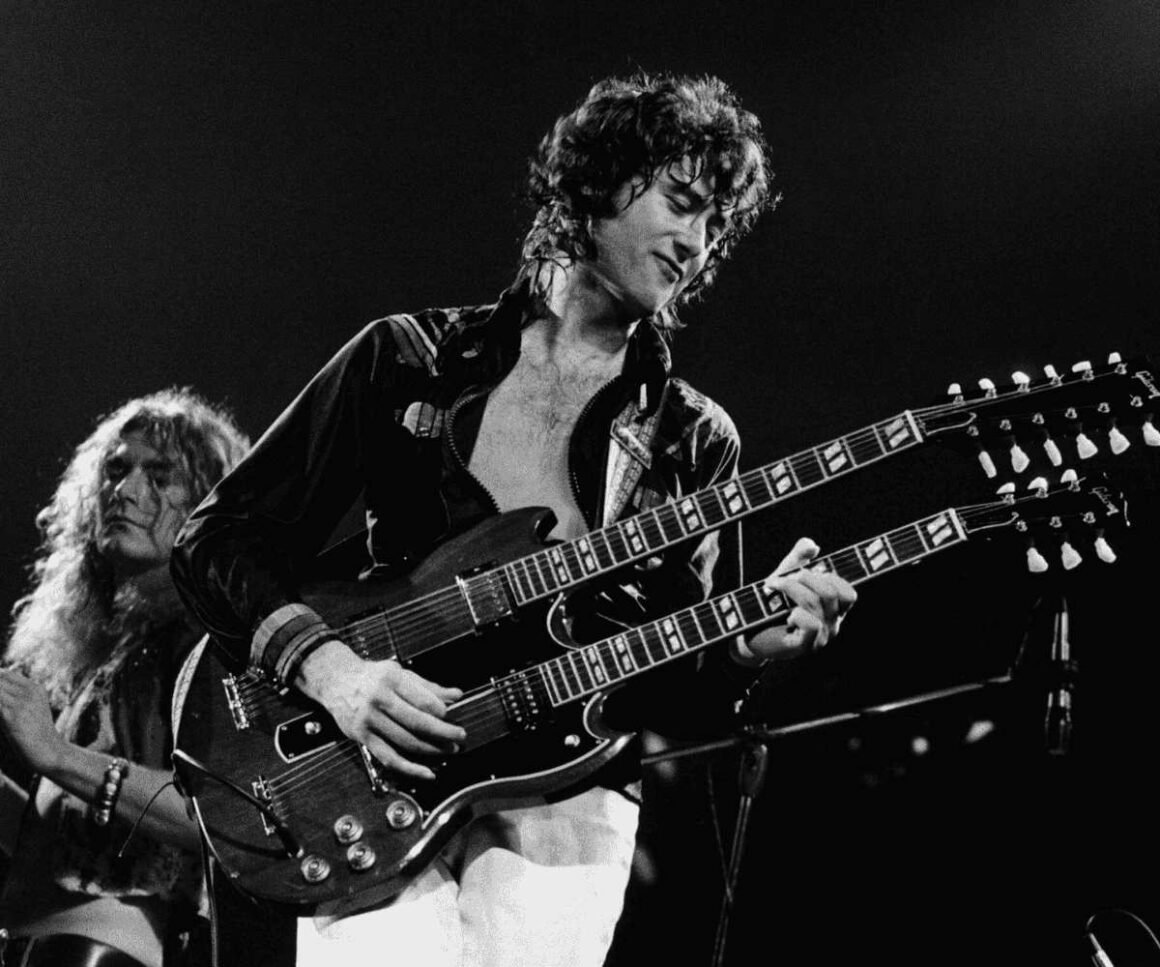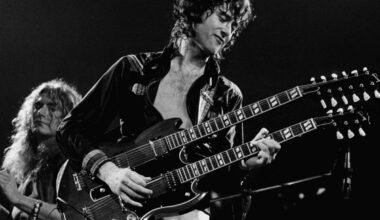The Beatles are to music what Citizen Kane is to film—a near-universal touchstone of influence. Much like any filmmaker inadvertently borrows from Orson Welles’ groundbreaking techniques, musicians have absorbed the essence of The Beatles, often unknowingly. This includes even rock giants like Led Zeppelin, with Jimmy Page openly acknowledging the Fab Four’s impact on the creation of “No Quarter.”
Led Zeppelin’s ambitions went far beyond blues revivalism. With the band’s rise, Jimmy Page envisioned a broader canvas for rock music. While other blues-inspired bands drew from The Yardbirds, Zeppelin became Page’s laboratory for sonic experimentation. Tracks like “The Battle of Evermore” introduced folk-inspired mysticism, while “The Rain Song” offered a ballad with a unique guitar tuning. Zeppelin aimed not just to innovate but to transcend rock’s roots entirely.
By the mid-1970s, Zeppelin had arguably outpaced The Beatles in shaping the next wave of rock, with their work on Physical Graffiti defining the genre’s direction. Songs like “Whole Lotta Love” and “Kashmir” became templates for a generation, their influence echoed in countless imitations. Yet, even as they led the charge, Zeppelin’s work sometimes bore subtle fingerprints of The Beatles.
Take “No Quarter,” one of Zeppelin’s most ominous tracks. While it stands apart as a heavy metal precursor, its haunting vibe stems partly from a production trick first mastered by The Beatles. On their song “Rain,” The Beatles slowed down the tape, creating a thicker, more immersive sound. Ringo Starr’s already powerful drumming became even more commanding in this altered state.
Jimmy Page adopted a similar technique for “No Quarter,” using vari-speed to lower the entire track by a quarter tone. “The only song I can think of that we vari-speeded up were a couple of overdubs on ‘Achilles Last Stand,’” Page once explained, “but I applied vari-speed to the overall track of ‘No Quarter.’ I dropped the whole song a quarter tone because it made the track sound so much thicker and ominous.”
This production choice gave “No Quarter” its eerie, slow-motion quality, setting it apart from Zeppelin’s blues-heavy peers. The slight detuning created a dissonant, otherworldly atmosphere that mirrored the experimental edge of “Rain.” Both tracks feel like portals to another sonic dimension, transcending their rock roots.
While Led Zeppelin forged their own path, “No Quarter” serves as a testament to how The Beatles’ innovations shaped even the boldest musical pioneers. The Fab Four’s shadow looms large, even over the heaviest of rock titans.







